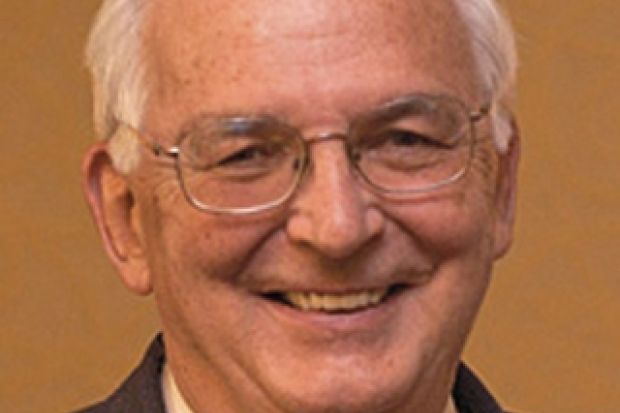Charles R. O'Melia, an expert on water treatment, was known among his peers as someone who retained a humble demeanour despite being a leading scholar in his field.
The professor emeritus in the department of geography and environmental engineering in the Whiting School of Engineering at Johns Hopkins University, in the US, demonstrated this in 2000 when he won the Athalie Richardson Irvine Clarke Prize, a top award in the field of water-related research and technology. He gave away all of the $50,000 (£31,000) prize money.
He explained at the time: "If I'd won the lottery, I wouldn't give all of that money away. But this was an award associated with some of the work I've done, and I didn't want to profit from it. I wanted to recognise some of the places that have helped my wife and me to get here. It was a team effort."
Professor O'Melia was born in 1934 in New York and attended Manhattan College, where he received his bachelor's degree in civil engineering in 1955.
He went on to the University of Michigan to study for a master's degree in environmental engineering and, after a brief stint at a consulting firm, a doctorate in environmental engineering.
Professor O'Melia taught at Georgia Institute of Technology and carried out research at Harvard University before joining the faculty at the University of North Carolina at Chapel Hill.
He was recruited by Johns Hopkins in 1980 and spent years there as a member of staff.
During his time at the university, he spent two terms as department chair and was elected to the National Academy of Engineering.
Paying tribute to a "a phenomenal role model", William C. Becker, a former student of Professor O'Melia's who is now vice-president and director of water process technology and research at Hazen and Sawyer, said: "As a teacher, Charlie was simply extraordinary. He had a way of explaining very complex material in terms that were understandable.
"More importantly, he taught his students to always look at problems in terms of first principles, but to also always keep an eye on the big picture. As an adviser he demonstrated creativity, clear vision and true excellence."
Nick Jones, dean of the Whiting School of Engineering, said: "A true scholar and gentleman, Charlie embodied the best of Johns Hopkins. His generosity and warmth of spirit were matched by a terrific dedication to his work as a researcher, educator and scholar."
Professor O'Melia was diagnosed with brain cancer and died on 16 December. He is survived by his wife of 54 years, Mary, his six children and 11 grandchildren.
